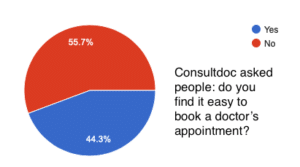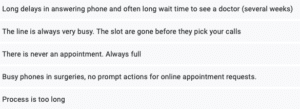The days of a quick, direct face-to-face appointment at your doctors for a minor illness, may soon be a thing of the past if the current trend in the way people access primary care continues. We all know the pandemic has impacted us in every aspect of our lives and one area that is most important, regardless of change, is healthcare.
According to the Royal College of General Practitioners at the peak of the Covid-19 pandemic, the ways in which patients accessed their primary care doctor reversed from around 70% face-to-face and 30% remotely (by phone, video, or online) pre-pandemic to around 30% face-to-face and 70% remotely.
A study published in the journal BJGP Open by researchers from the Unit of Academic Primary Care at Warwick Medical School shows that before the pandemic, in the study population, awareness and use of online primary care services were higher in individuals who used the internet daily, and those who attended general practice frequently. Having a long-term condition, being female, and being registered at a practice in an area of low deprivation were all associated with greater awareness and use of telephone and online services. Also, the study has demonstrated awareness and use of telephone and online access are associated with persons being retired and with higher education levels. Parents and carers were most likely to use telephone access.
This study for everyone implies that the COVID-19 pandemic has markedly increased the level of use of telephone consultations and online consultations, and it looks likely that the rapid move to using online methods of contact and access will be retained after the pandemic to a certain degree. In response to this, Consultdoc a private organisation with an interest in innovative primary health care delivery and an independent online primary care service provider conducted a patient survey recently, asking patients why they find it difficult accessing their primary care doctor, a snapshot of some of the 79 responses received is shown in the photo below.


We feel the cultural change and innovative technology in healthcare may not be enough to meet future demand for healthcare, but a holistic approach is needed engaging patients groups with more collaboration between research organisations and service providers which will give more evidence-based guidelines for better policy development to improve health and well-being of the population.
For regular updates on primary care research, please register a profile here and you will receive free personalised healthcare advice on your dashboard together with the ability to book a video consultation with any of our primary care doctors at any time.
